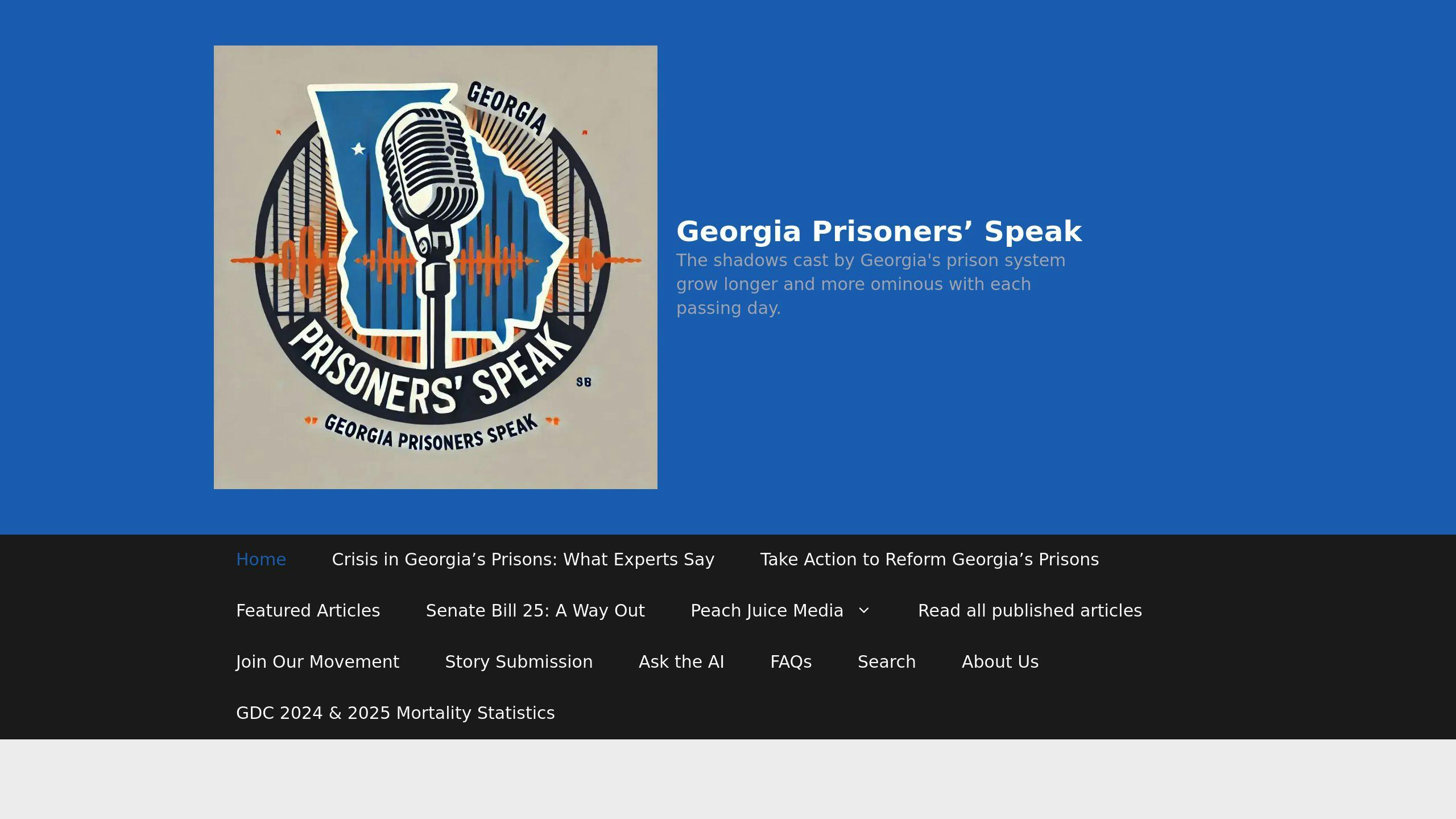Prison law libraries in Georgia are essential for helping inmates understand their legal rights and access justice. Here’s what you need to know:
- Access: Inmates can use law libraries by submitting a written request and following a strict schedule. Even those in lockdown are provided alternatives like book carts and photocopies.
- Hours: Libraries must operate at least 20 hours weekly, with a minimum of 2 hours for probation detention centers.
- Resources: Legal materials include federal/state case law, codes, forms, and digital resources with 30-minute sessions per inmate.
- Support: Trained staff and clerks assist with research, and accommodations are available for inmates with special needs.
Despite these measures, challenges like limited hours, outdated materials, and restricted access persist. Advocacy groups push for reforms, including longer hours and improved digital access, to better uphold inmates’ constitutional rights.
Law Library Services for Incarcerated People
Georgia Prison Law Library Rules
The Georgia Department of Corrections (GDC) has established rules for law library operations to balance inmates’ legal rights with institutional security. These guidelines ensure fair access while maintaining order.
Who Can Use the Law Library
Inmates in Georgia prisons are allowed to use law library services, regardless of their housing status. However, accessing the library requires following a specific process:
| Requirement | Details |
|---|---|
| Written Request | Submit a formal request to the Librarian |
| Scheduling | Must be added to the official call-out list |
| Material Limits | Borrow up to 2 items at a time |
| Electronic Access | Cannot use print and electronic resources simultaneously |
This system ensures access is managed fairly, given limited resources. The Librarian oversees time allocations, taking into account the number of computer stations and overall requests [1]. Once approved, strict schedules and security measures are followed.
Library Hours and Staff Duties
Law libraries are required to provide inmates at probation detention centers and county institutions with at least 2 hours of access per week [1][2].
Library staff are responsible for:
- Supervising clerks and scheduling inmate access
- Managing checkouts and returns of materials
- Keeping detailed daily usage logs
- Enforcing security protocols
The Librarian is vital in ensuring the library operates smoothly and remains accessible. They must document library use carefully and conduct annual evaluations to meet established goals. All law libraries must be secure, lockable spaces suitable for research and study [2].
For inmates with restricted movement, alternative options like book carts, photocopies, or satellite library access are provided to meet their legal research needs [1]. Access to quality legal materials is a key part of supporting inmates’ legal rights.
Legal Materials and Resources
Georgia prison law libraries provide inmates with access to a range of legal materials in both physical and digital formats. This approach caters to various research needs while meeting security requirements set by the Department of Corrections.
Available Legal Materials
Prison law libraries in Georgia offer a variety of legal resources, including federal and state case law, legal forms, and reference tools. These materials are made available in updated print and digital formats to ensure inmates can conduct thorough legal research.
| Resource Category | Available Materials |
|---|---|
| Federal Materials | Federal Reporter, U.S. Code, Supreme Court Decisions |
| State Resources | Georgia Code, State Court Decisions, Local Regulations |
| Reference Guides | Legal Dictionaries, Research Guides, Citation Manuals |
| Legal Forms | Court Filing Templates, Appeal Documents, Procedural Forms |
Books and Computer Access
The electronic law library system is the main tool for legal research, offering inmates digital access to extensive legal databases. Key policies for access include:
- 30-Minute Sessions: Inmates are provided 30-minute sessions for digital research. After their session, they can turn to print materials if needed [1].
- Access for Lockdown Units: For those in lockdown, resources like book carts and photocopies are available to ensure compliance with legal access requirements [1].
- Print Management: Print materials are maintained to ensure durability and fair access for all users.
For facilities housing over 150 inmates in lockdown, satellite reference libraries are set up to maintain access to legal resources [1]. A Librarian oversees the allocation of materials, ensuring they meet demand and match the number of available computer stations [1]. In segregation units, materials are typically loaned for seven days to allow sufficient time for research [2].
Advocacy groups such as Georgia Prisoners’ Speak have called for expanded digital access and improvements in the quality of legal resources. While these tools are available, challenges persist, especially for inmates with limited mobility or specific needs.
sbb-itb-7858f51
Access Issues and Solutions
The Georgia Department of Corrections faces challenges in providing law library access while balancing security measures and the diverse needs of inmates. Tackling these issues is essential to uphold constitutional rights.
Rules for Restricted Inmates
Inmates in lockdown or solitary confinement still have the right to access legal materials, but alternative methods are used to meet these needs. These include book cart deliveries twice a week, photocopies provided upon request, and scheduled library visits with prior approval. To ensure fairness, all requests are date-stamped, and a detailed catalog helps inmates make informed decisions about their requests [1].
For facilities with over 150 inmates in lockdown, satellite libraries offer legal resources tailored for restricted areas. These libraries maintain comprehensive catalogs, so inmates can request specific materials even without direct access [2].
While these procedures address access for restricted inmates, more steps are needed to support individuals with additional challenges.
Help for Special Needs
Library staff assist inmates facing literacy issues, language barriers, or physical disabilities. They locate information, provide translated materials, and ensure accommodations for accessibility. Annual reviews by the prison librarian help identify areas for improvement in these services [2].
Advocacy groups like Georgia Prisoners’ Speak stress the importance of maintaining and enhancing these accommodations to protect inmates’ legal rights. Their records highlight how effective support services can make a real difference, particularly for those with special needs.
The Department’s policy of ensuring at least 20 hours of weekly library access, excluding time for meals and counts, reflects its effort to balance security with inmates’ legal rights [1]. Reform advocates remain focused on ensuring fair access to legal resources for all inmates.
Reform and Advocacy
Efforts to reform Georgia’s prison system aim to tackle deep-rooted issues while driving changes in how incarcerated individuals access legal resources.
Georgia Prisoners’ Speak Advocacy Work

Georgia Prisoners’ Speak (GPS) collaborates with legal aid groups to document cases where inmates are denied access to legal resources and to provide free legal services.
GPS uses several approaches to push for change:
| Advocacy Channel | Focus Areas |
|---|---|
| Legal Partnerships | Working with pro bono attorneys and legal aid organizations |
| Public Awareness | Highlighting access barriers through media campaigns |
| Stakeholder Engagement | Communicating directly with prison officials and lawmakers |
| Community Support | Involving volunteers and families in reform efforts |
Through these initiatives, GPS has also proposed specific policy changes to address some of the most pressing systemic problems.
Suggested Policy Changes
Drawing inspiration from successful programs in other states, advocates have suggested several improvements:
- Digital Resource Access: Implementing secure digital law libraries to allow more inmates to access materials at the same time and address space limitations.
- Extended Hours: Advocating for longer access hours to better fit the schedules and needs of inmates.
- Enhanced Staff Training: Developing detailed training programs for library staff to improve service quality and ensure they can assist inmates with disabilities or language barriers.
These proposals aim to eliminate barriers like restricted access for inmates in lockdown, which were identified earlier. By addressing these challenges, the reforms would uphold inmates’ constitutional rights and promote fair access to legal resources.
Summary
In Georgia prisons, access to law libraries is a cornerstone of inmates’ constitutional rights, shaped by key rulings like Bounds v. Smith and ongoing reforms. However, the shift from traditional libraries to digital resources has introduced new challenges.
Despite existing policies, inmates often face barriers such as limited library hours, outdated or insufficient resources, and unreliable digital access. These obstacles make it difficult for them to fully exercise their legal rights. Experts highlight the stark contrast between the resources available to inmates and those accessible to external legal professionals. The Georgia Supreme Court has underscored the importance of allowing inmates to conduct legal research throughout their cases – not just during initial filings.
Currently, Georgia prisons offer a mix of physical and digital resources, along with accommodations for inmates with special needs. While these measures are helpful, they fall short in areas like access hours and the quality of materials provided.
Advocacy groups, including Georgia Prisoners’ Speak, continue to shed light on these systemic issues and push for meaningful reforms. Key problems include:
- Limited access hours and restricted physical entry
- Incomplete rollout of digital resources
- Uneven support for inmates with special needs
- Inconsistent quality of legal materials
Addressing these issues requires collaboration among advocacy groups, legal experts, and correctional facilities. Proposed solutions include extending library hours, improving digital resource availability, and ensuring security measures remain intact. These steps are crucial for creating a fairer system that upholds inmates’ legal rights.
